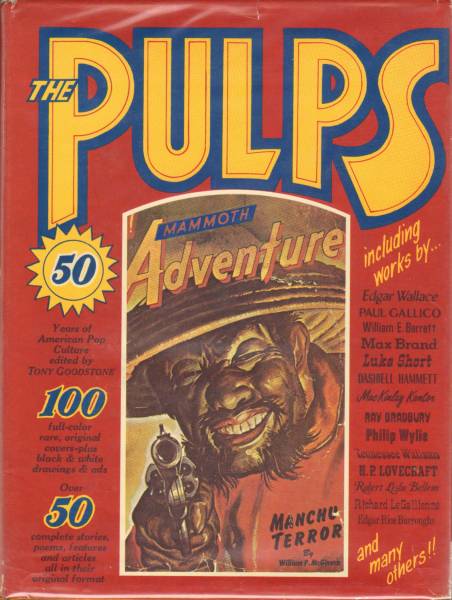Saturday night I saw Pulp Fiction for the first time. My wife wanted to do for her birthday, in part because I’d never seen it. It is one of her favorite movies.
You might be asking how it took this long for me to see Pulp Fiction. It is a huge part of the cultural zeitgeist. It is considered Tarantino’s masterpiece. Critics list it as one of the best films of all time. I love fiction from the pulps and inspired by the pulps. The last lead C to think I’d love it. Yet. she also expected me to hate it because she knew I’d resisted seeing it.
The reality is I’m not a big Tarantino fan. Sure, he makes great films, but not all his films are great stories. So we’ll amend that; he makes good films, because great films are good or better in every aspect. Tarantino is great at making allusions to inspirational works. It is his most famous trait. He directs great scenes. Interesting takes abound in his movies. The dialog he writes has the strange property of being mundane and interesting at the same time.
What he can’t do well is plot. Tarantino films with original stories have uneven pacing at best. My favorite film by him, Jackie Brown features a screenplay bu Tarantino, but is based on a Rum Punch by Elmore Leonard. I suspect the tight plotting and good story pace of Jackie Brown comes from the story by a master of crime fiction than it does to the screenplay of a great director.
So, now that we have my big problem with Tarantino out of the way, I don’t consider him a very good storyteller, what I did think of Pulp Fiction?
I liked it. The time watching it was well spent, but I was getting restless about two thirds of the way through it. At two and a half hours, more or less, it is a long film. It felt closer to three an a half hours long. The odds are this is my last viewing as well as my first.
My single biggest complaint is pacing. Tarantino loves indulgent long takes. Sometimes they work really well. The classic scene where Ordell looks into an empty bag then waits forever before telling Louis, “Jackie Brown,” is a great example. Samuel L. Jackson said they would do a take and Tarantion would tell Jackson, “you can take longer,” until Jackson got pissed and waited much longer than he knew Tarantino wanted.
Of course, that is the version in the film.
Pulp Fiction* has two examples of these in the first story, “Vincent Vega and Marsellus Wallace’s Wife”. After Vincent shots up we see a long driving scene where his perception is messed up. We see that both externally, seeing his car from the outside weaving down the road, and internally, seeing through his eyes and the windshield a warped perspective.
That’s fine, we need that info to setup the snorting scene that is the second doorway in the tale. However, we get an almost identical sequence when he is led to their seat in the Jack Rabbit Slims. Again, we get the perspective of Vincent very stoned. In between we get a variant on that with Vincent looking around Marcellus’s apartment while Mia watches him through the security camera.
Two of the three should be omitted or compressed. Actually, two should. The actual story already has a slow start. It takes a long time to build. Part of that is the nature of a date, which this is, but before the awkward start of the date we trudge through the down time of being stoned. The idea of the heroin’s strength should have been gotten across in a short span to avoid boredom.
The second pacing problem is “The Problem with Bonnie”. While it gets moving pretty quick with the miracle shots and Vincent shooting Marvin, it really slows down at Jimmie’s place. Once the Wolfe arrives it picks back up, but the center of that section drags, wastes time in the whole coffee discussion, and doesn’t spent much time doing what it is supposed to do, set up Jules quitting. The coffee section, in particular, is a waste of time in terms of story.
Sure, there is a story about Jimmie and Bonnie and her not knowing he has criminal ties. The problem is that is not the story here. The story here is Jules believes God has told him to quit. The shooting of Marvin is never integrated into that nor is any of the effects of it. A stronger story would focus on Jules and his road to Damascus event.
In the end, Pulp Fiction is too stylized, which is a Tarantino tradition. Susan Sontag says in ”On Style” overly stylized art cannot be great art. I agree.
So, I’ve finally seen Pulp Fiction. I’m glad I did, but I don’t think it’ll loom as large for me as it does for so many people.





[…] Reflections on Pulp Fiction 2019-04-30 […]